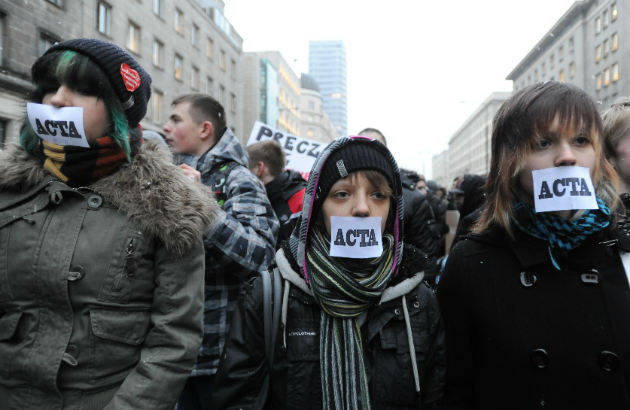TO: H.E Ambassador Dr Roberto RIDOLFI
Head of the European Union Delegation to Uganda
RE; India – European Union Free Trade Agreement to deprive Ugandans of access to life saving medicines
Dear Sir,
We (the undersigned) are writing this Letter as Civil Society Organisations in Uganda working in areas of Health, Trade, Intellectual Property and access to Medicines.
The purpose of this letter is to express our concerns over the Free Trade Agreement being negotiated between India and the European Union. We understand that there has been intense activity on this FTA in the past few months and there is significant pressure on the Indian government to announce “trade-offs” at this Summit. We are extremely concerned that our access to medicines may be traded away in this FTA. It has come to our notice that the India-EU FTA as currently drafted may have drastic consequences for the accessibility and affordability of medicines in Uganda because the EU is unyielding on the inclusion of provisions on intellectual property that exceed India’s obligations under the Agreement on Trade Related Aspects of Intellectual Property Rights (TRIPS) and that, if not corrected, will endanger access to generic medicines—in India as well as in importing countries such as Uganda, where our lives depend on access to Indian generic medicines.
If such provisions on intellectual property are introduced in India, the ability of Indian generic companies to produce affordable medicines required not only in India but in Uganda as well would be severely compromised.
It should be noted that almost 90% of drugs in Uganda are imports of which most are generic versions from India. India like Uganda is a party to the Agreement on Trade Related Aspects of Intellectual Property Rights (TRIPS). As per requirements under TRIPS, India today grants product patents for drugs and pharmaceuticals. This has impacted the accessibility and affordability of cheap life saving drugs.
However, as confirmed by the Doha Declaration that all the governments of the European Union are signatory to, several provisions of the TRIPS Agreement can be interpreted and applied in a manner that ensures “access to medicines for all.” The Indian Parliament has accordingly included health safeguards in its patent law by using the Doha Declaration and have ensured that the door has not been completely shut on India’s generic drugs manufacturers. The Indian law uses multiple TRIPS flexibilities like strict patentability criteria, compulsory licence, parallel imports, no data exclusivity and several others to ensure that generic production continues.
Our concern is primarily that you ensure ELIMINATION OF THE FOLLOWING PROVISIONS IN THE EU-INDIA FTA:
• Investment Rules, as they enable foreign companies to take the Indian government to private courts over domestic health policies like measures to reduce prices of medicines.
• Border Measures, as they will deny medicines to patients in other developing countries with custom officials seizing generic medicines in transit.
• Injunctions, as they undermine the independence of the Indian judiciary to protect right to health of patients over the profits of drug companies.
• Other Intellectual Property Enforcement Measures, as they put third parties like treatment providers at risk of police actions and court cases.
AND DO NOT BRING BACK:
• Data Exclusivity, as it delays the registration of generic medicines and will not permit the placing of affordable versions of pediatric doses and combinations of “off-patent” medicines on the market.
• Patent Term Extension, as it will extend patent life beyond 20 years.
We note that the European Commission has stated that data exclusivity and patent term extension have been excluded from negotiations—and we are calling on your support to keep your promise.
The India – EU Free Trade Agreement must take maximum advantage of the flexibilities detailed under the TRIPS Agreement as affirmed by the Doha Declaration and August 30th decision on Public Health. As currently drafted, this FTA reverses the TRIPS flexibilities used by the Indian government and as such impedes access to medicines initiatives of Ugandans.
We are therefore looking forward to working with you to address our Concerns in this Free Trade Agreement prior to its being signed.
Sincerely;
1. Action Group For Health, Human Rights and HIV/AIDS (AGHA) Uganda
2. Community Integrated Development Initiatives (CIDI)
3. Health Global Access Project (Health GAP)
4. International Community of Women Living with HIV/AIDS East Africa
5. Southern and Eastern African Trade Information and Negotiations Institute (SEATINI)
6. The AIDS Support Organisation (TASO)
7. The Center for Health, Human Rights and Development (CEHURD)
8. Uganda Coalition for Health Promotion and Social Development (HEPS)
9. Uganda National Health Users’/Consumers’ Organisation (UNHCO)
Cc; Lady Catherine Ashton,
Vice President of the European Commission and EU High Representative for Foreign Affairs and Security Policy (VP/HR)
CC; Ambassador Soumen N. Ray,
India’s High Commissioner in Uganda
CC: Hon. Amelia Kyambadde
Minister of Trade, Industry and cooperatives
CC: Mrs.Edith Mwanje
Permanent Secretary, Ministry of East African Community Affairs
Postel Building, 67/75 Yusuf Lule Road, P.O. Box 7343, Kampala
CC: Hon. Eriya Kategaya, Minister for East African Affairs Uganda,

